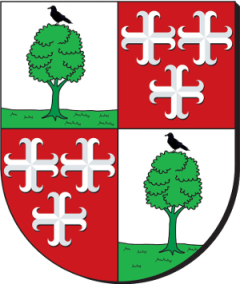Franciscus Lieftinck (1835 – 1917) began his career as a minister. Twenty years later, he joined the Lower House, where he would remain for thirty-eight years. He belonged to the side of the progressive liberals. From 1908, he was the oldest member (nestor). With his appearance of tough patriarch with beard and moustache, he was a favourite of the cartoonists of his time. As a parliamentarian, he witnessed the developments of his time. This book is therefore more than a simple life story, it is also – perhaps even mainly – the portrayal of a time.
To begin with, Franciscus Lieftinck’s world was defined by that of the Protestant church folk at a time when the struggle between the ‘orthodox’ and the liberal was particularly fierce. When he entered the arena of national politics, reality took on a wider dimension for him. As the reader moves through the second half of the nineteenth century and the beginning of the twentieth with Franciscus Lieftinck, he faces a wide variety of issues. It is interesting to see how, in his era, an election campaign was conducted. The reader gets to grips with the issue of education, which ran high in Francis’ days. He is reminded that in those days, social legislation was carried by the liberals.
In addition to these points of a general nature, the reader meets some special personalities, starting with leading figures of Dutch politics: Domela Nieuwenhuis, Troelstra, Goeman Borgesius, De Savornin Lohman. A prominent figure within Freemasonry, Francis had a close relationship with Prince Alexander, the son of King William III. The reader is also introduced to the painter Hendrik Dirk Kruseman van Elten, to a prince Bonaparte, author of a book on Suriname, to Adam Zelle, who was the father of Mata Hari, to the Persian shah Nasreddin…
Who recalls the sinking of the warship De Adder off the coast of Scheveningen, in which the entire crew drowned? For Francis, it prompted one of his most notorious chamber speeches. He was known for his eloquence and humour. There is plenty of evidence of this in the minutes of the Acts of the States General, which have recently become digitally accessible.
Franciscus Lieftinck is the author’s great-great-grandfather. The book is intended for readers with a broad historical interest.
The Hurgronje Family Fund made a financial contribution to the publication of this book.

0 comments